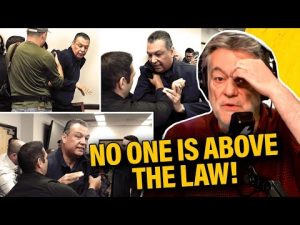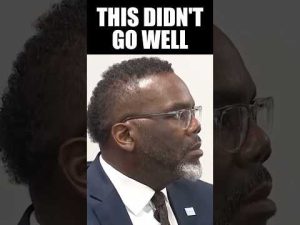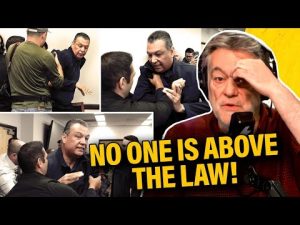In the past weeks, a peculiar situation unfolded that has shed light on the growing tensions between protest movements and law enforcement. The streets have been buzzing with protesters asserting their right to free speech. Yet, some have expressed frustration at the sight of National Guardsmen keeping the peace while tensions boil over. One particular incident showcased an emotional outburst from a passionate protester—an experience reflective of a larger national dialogue about rights, duties, and the fine line between protest and disorder.
This protester, who confidently introduced herself as Alex, exhibited her fervor through a colorful assortment of jewelry and unapologetic rhetoric. Her claim was clear: she and her fellow demonstrators were fighting for freedoms that many Americans hold dear. This conviction may not seem unusual, but the accompanying outburst raised questions about the nature of free speech and the role of law enforcement in maintaining public order. It seems there is a disconnect between the protesters’ intent and the reality of the situation on the ground.
On the one hand, it is critical to support the right to peaceful protest. Our nation was founded on the principles of free speech and civil liberties. However, when protests escalate and result in confrontations with law enforcement, we must ask ourselves—where is the line drawn? The National Guardsmen stood outside the Immigration and Customs Enforcement (ICE) facility, not to suppress free speech, but to prevent potential violence and protect officers from being harmed. Their presence is necessary in maintaining public safety, especially when protesters threaten to cross the line from free speech to free-for-all.
This confrontation highlights an important aspect of modern protests. While many participants have noble intentions, some seem willing to dismiss the law enforcement officials’ role in these scenarios. Instead of inciting chaos, wouldn’t it be more productive for these individuals to explore solutions that embrace dialogue rather than discord? After all, shouting into a bullhorn does not always yield positive results.
In examining this scenario, we must also consider the value of moderation and decorum in discourse. Alex, while certainly passionate, may represent a growing trend where emotion overtakes reason in public discussions. This approach may resonate with some, but it may ultimately lead to a breakdown in effective communication and problem-solving. A walking contradiction, she called out others for a lack of courage, all the while boldly engaging in behavior that could be seen as incendiary.
In conclusion, while it is essential to protect the rights of Americans to voice their opinions, understanding the role of law enforcement is paramount. National Guardsmen are not the enemy; they’re there to ensure safety and order, especially during tumultuous protests. Moving forward, it would serve the nation well to strike a balance between passionate advocacy and thoughtful dialogue, resting firmly on the principles of civility and respect for law. After all, the goal should be to foster an environment where all voices are heard—without resorting to chaos or shouting over one another. As we continue to navigate these complex issues, perhaps it’s time to remember that cooperation might just be the best protest of all.







